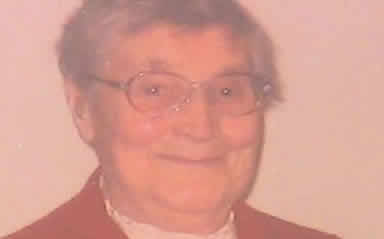Teresa Dwyer, from Monasteraden in Co Sligo, was a patient in the rehab unit of the hospital and had been told to bang her fist or a glass on her bedside locker or to shout if she needed attention.
This was because there was no call bell system in place at the hospital at the time.
Around 3.15am on 24 May 2013, two nurses heard a loud bang and went immediately to Mrs Dwyer’s ward.
They found her on the floor with a gash to her forehead.
The nurses told Sligo coroners court that they helped Mrs Dwyer to the commode and treated her cut, but did not call a doctor.
Staff nurse Catherine Gurn told the inquest that Mrs Dwyer’s neuro observations were stable and similar to those taken on previous days.
Ms Gurn said that Mrs Dwyer was not in pain and stated that she had not called or knocked for assistance.
Mrs Dwyer’s daugter-in-law Marie McMahon, however, gave evidence that she told her that she had called the nurses once or twice but no-one came.
She was not seen by a doctor until noon and he directed that she be taken to Sligo Regional Hospital by emergency ambulance where it was discovered that she had two pelvic fractures.
Mrs Dwyer, who had acute heart failure, died later as a result of a blood clot which led to heart failure.
A review of her case by the HSE made seven recommendations, including that each new admissions be provided with a portable call bell until the electronic system was installed.
The court was told that funding for a call bell system had been approved for St John’s in January 2013 and was put in place in October of that year.
The review also saw the implementation of a new fall policy at the hospital whereby the medical officer is to be contacted on a 24-hour basis in relation to a head injury or if clinically indicated.
In the case of all other non-emergency accidents, the medical officer is to be notified by 8.30am.
Coroner Eamon McGowan returned a verdict of medical misadventure on three grounds: the inadequate call bell system in place at the hospital at the time; the fact that there was no medical review of Mrs Dwyer on the morning of her fall; the low therapeutic levels of warfarin administered to her two days prior to her death.
He added that the recommendations made in the HSE review should be strongly enforced in St Johns.
The family of Teresa Dwyer said she died in circumstances which were avoidable.
Welcoming the coroner’s finding and recommendations in her case, they said they hoped that nobody else will lose their mother in such circumstances.
Mrs Dwyer’s daughter Margaret Dwyer, who works as a nurse, said that the level of care she received was very unsatisfactory, “particularly when she was so elderly, was on warfarin therapy, had a fall, injured her head and wasn’t medically assessed.”
She said: “The biggest thing for us, she said was there was no call bell system for my mother to call for attention, and that it was such an antiquated service and the nine hour wait, its not acceptable in 2013.”


